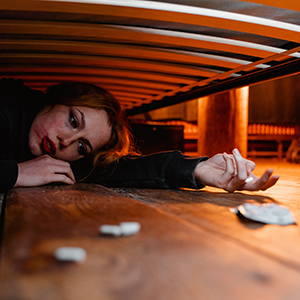What is therapeutic? Analysis of the narratives available on the websites of Italian addiction rehab centres to present the therapeutic programme

Submitted: February 17, 2022
Accepted: August 25, 2022
Published: September 1, 2022
Accepted: August 25, 2022
Abstract Views: 3214
PDF: 598
HTML: 13
HTML: 13
Publisher's note
All claims expressed in this article are solely those of the authors and do not necessarily represent those of their affiliated organizations, or those of the publisher, the editors and the reviewers. Any product that may be evaluated in this article or claim that may be made by its manufacturer is not guaranteed or endorsed by the publisher.
All claims expressed in this article are solely those of the authors and do not necessarily represent those of their affiliated organizations, or those of the publisher, the editors and the reviewers. Any product that may be evaluated in this article or claim that may be made by its manufacturer is not guaranteed or endorsed by the publisher.
Similar Articles
- Jose L. Vilchez, Mental footnotes: knowledge constructivism from logical thinking to personal beliefs and therapy , Research in Psychotherapy: Psychopathology, Process and Outcome: Vol. 19 No. 2 (2016)
- Sigmund Karterud, Case formulations in mentalization-based group therapy , Research in Psychotherapy: Psychopathology, Process and Outcome: Vol. 21 No. 3 (2018)
- The Editors, Clinical practice and research: the therapeutic rhythm , Research in Psychotherapy: Psychopathology, Process and Outcome: Vol. 25 No. s1 (2022): Abstract Book - XIV National Conference of the Society for Psychotherapy Research - Italian Group, Clinical practice and research: the therapeutic rhythm, November 25-26, 2022, Cremona (Italy)
- Maria Inês Galvão, Ana Nunes da Silva, António Branco Vasco, The Alliance Negotiation Scale: Portuguese adaptation , Research in Psychotherapy: Psychopathology, Process and Outcome: Vol. 22 No. 2 (2019)
- Petr Doležal, Michal Čevelíček, Tomáš Řiháček, Jan Roubal, Roman Hytych, Lucia Ukropová, Why did she leave? Development of working alliance in a case of psychotherapy for depression , Research in Psychotherapy: Psychopathology, Process and Outcome: Vol. 22 No. 2 (2019)
- Sarah Abraham, Elisabeth Edginton, David Cottrell, Sandy Tubeuf, Measuring health-related quality of life measures in children: lessons from a pilot study , Research in Psychotherapy: Psychopathology, Process and Outcome: Vol. 25 No. 1 (2022)
- Francesca Locati, Franco Del Corno, Laura Parolin, Jeremy Safran’s impact on Italian psychotherapy research and practice: a window into the processes involved in therapeutic alliance , Research in Psychotherapy: Psychopathology, Process and Outcome: Vol. 22 No. 1 (2019)
- Leandro Martín Casari, Mirta Susana Ison, Beatriz Margarita María Gómez, Personal style of the therapist and personality dimensions in a sample of Argentinian therapists , Research in Psychotherapy: Psychopathology, Process and Outcome: Vol. 22 No. 2 (2019)
- Aviv Nof, Tohar Dolev, Liat Leibovich, Judith Harel, Sigal Zilcha-Mano, If you believe that breaking is possible, believe also that fixing is possible: a framework for ruptures and repairs in child psychotherapy , Research in Psychotherapy: Psychopathology, Process and Outcome: Vol. 22 No. 1 (2019)
- Lidia Borghi, Federica Bonazza, Giulia Lamiani, Alessandro Musetti, Tommaso Manari, Maria Filosa, Maria C. Quattropani, Vittorio Lenzo, Maria Francesca Freda, Daniela Lemmo, Emanuela Saita, Roberto Cattivelli, Gianluca Castelnuovo, Elena Vegni, Christian Franceschini, Dreaming during lockdown: a quali-quantitative analysis of the Italian population dreams during the first COVID-19 pandemic wave , Research in Psychotherapy: Psychopathology, Process and Outcome: Vol. 24 No. 2 (2021): SPECIAL ISSUE "Working on dreams, from psychotherapy to neuroscience"
<< < 18 19 20 21 22 23 24 > >>
You may also start an advanced similarity search for this article.

 https://doi.org/10.4081/ripppo.2022.613
https://doi.org/10.4081/ripppo.2022.613





